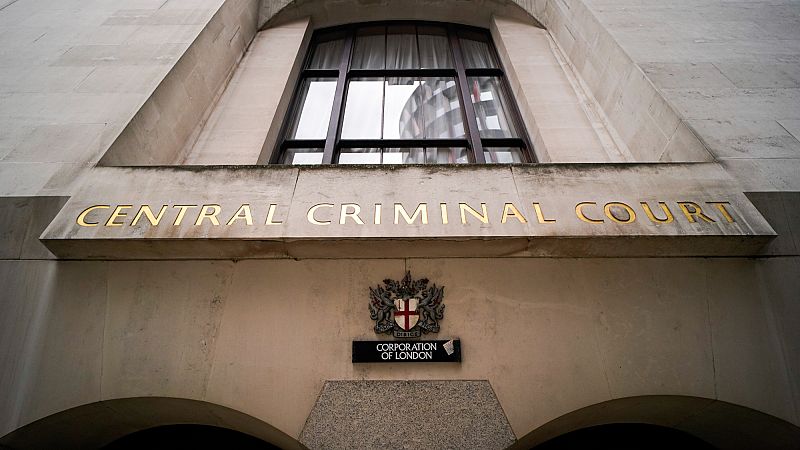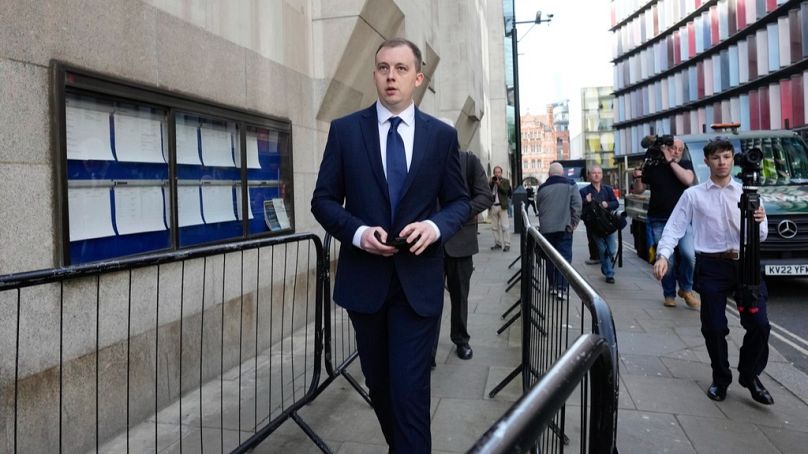China spy case collapse blamed on UK government's failure to brand Beijing a threat

The case against two British men accused of spying for Beijing collapsed last month after the UK government’s refusal to designate China as an "enemy" and a threat to national security, Britain’s top prosecutor has said.
In a rare intervention, Stephen Parkinson, the UK's director of public prosecutions, wrote to politicians to say that prosecutors had done "everything possible" to bring the case against Christopher Cash, 30, and Christopher Berry, 33, to court.
Cash, a former parliamentary researcher, and Berry, a teacher, were charged in April 2024 under the UK’s Official Secrets Act, which criminalises the sharing of information that could be "useful to an enemy" and "prejudicial to the safety or interests" of the UK.
The men — who both deny any wrongdoing — were accused of providing information to a suspected Chinese intelligence official between late 2021 and February 2023. The Chinese Embassy in London has called the allegations fabricated and dismissed them as "malicious slander".
The case was dropped last month, weeks before the trial was due to begin, with prosecutors saying there was not enough evidence to proceed. That led to widespread criticism from across the political spectrum.
In his letter on Tuesday, Parkinson cited a High Court judgment in a separate Russian spying case last year.
The court ruled that, in relation to the 1911 Officials Secret Act, an "enemy" was a country that posed a threat to the UK’s national security at the time of offence.
"In the light of this new judgment, it was considered that further evidence should be obtained," Parkinson said.
"Efforts to obtain that evidence were made over many months, but notwithstanding the fact that further witness statements were provided, none of these stated that at the time of the offence China represented a threat to national security, and by late August 2025 it was realised that this evidence would not be forthcoming. When this became apparent, the case could not proceed," he explained.
Starmer's frustration
While travelling to India on Tuesday, British Prime Minister Keir Starmer, himself a former head of public prosecutions, told reporters that he had briefly read Parkinson's letter.
Starmer added that China's designation at the time of the alleged 2023 offence, when a Conservative government was in power, was all that mattered.
"You have to prosecute people on the basis of what was the state of affairs at the time of the offence," said Starmer. "Nothing changes that fundamental, whoever is in government."
During its time in office, the previous government described China as an "epoch-defining challenge".
Starmer’s government has strongly denied suggestions from its opponents that it allowed the trial against Cash and Berry to collapse rather than risk upsetting China.
When the China spying case was dropped last month, Starmer’s office revealed its frustration, noting that the allegations against the two men were "gravely concerning".
"It is extremely disappointing that these individuals will not face trial," it said. "Any attempt by a foreign power to infiltrate our parliament or democracy is unacceptable."
The government has tried cautiously to reset ties with Beijing after years of frosty relations over spying allegations, human rights concerns, China's support for Russia in the Ukraine war and a crackdown on civil liberties in Hong Kong, a former British colony.
Britain's top diplomat and Treasury chief have both visited Beijing in the past year, and Starmer is expected to travel to China next year.
Today



